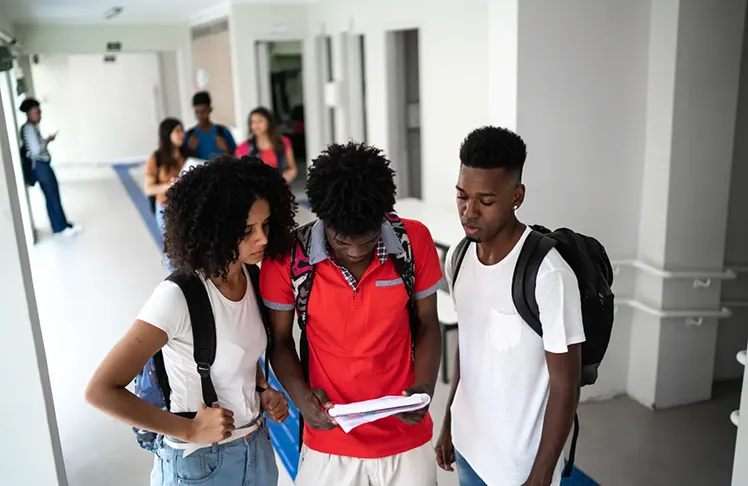
Black K-12 students, already struggling with math, reading proficiency, and an opportunity gap with whites that was made worse by the pandemic, are falling further behind, according to a new survey on childhood well-being.
The Annie E. Casey Foundation’s 2025 Kids Count Data Book, released last week, found that 9 in 10 Black eighth-graders are not proficient in math, and 85% of fourth-graders are not reading at grade level — the highest failure rates of any racial group.
At the same time, more than half of all Black toddlers are not enrolled in preschool, while nearly 20% of Black high-schoolers aren’t graduating on time, nearly twice the rate of their white peers, according to the report.
“The data shows we have work to do across the board,” says Leslie Boissiere, vice president of external affairs at the Annie Casey Foundation. “While students of all races are falling behind in math and reading, Black students face the most significant disparities.”
But the chronic struggles of Black students won’t improve, she says, without addressing systemic racial issues in K-12 public education, and tackling problems that are closely linked to poverty outside of the classroom.
“It’s hard — sometimes impossible — for students to keep up with their lessons if their families are burdened by challenges like food insecurity and unstable housing,” Boissiere says. “A hungry child can’t concentrate in school, and a kid who needs glasses but whose parents can’t afford them can’t see the lessons to learn them.”
Systemic Inequities
According to the Kids Count report, the struggles for Black students begin early. While education experts say early childhood education is critical to long-term academic success, just 53% of Black 3- and 4-year-olds are not enrolled in preschool, due to a lack of access.
As children progress through the system, the barriers only grow: fewer advanced coursework opportunities, disproportionate discipline, over-surveillance, and underfunded classrooms.
Feed the Children, a nonprofit that addresses child hunger, adds that food insecurity “translates to lower math and reading scores, [and] can also lead to more absences and tardiness.” Hungry children, it states, “are less likely to graduate from high school. There are also school-related emotional and social setbacks when a child doesn’t have enough to eat.”
Consistent data and research prove that closing these gaps will require more than just generic solutions or surface-level reforms. For Boissiere, the way forward must begin with data and a willingness to confront racial disparities head-on.
“Our data shows that when children have access to essential resources like quality healthcare, education, and nutrition, not only do they thrive, but our communities and economies are stronger,” she says. “We urge policymakers to address the disparities in our schools and neighborhoods to make it easier for all our students to excel.”
It’s Within Our Power
Despite the bleak numbers, Boissuere says there are still signs of progress. The Data Book highlights some bright spots, including improvements in on-time graduation rates for Black students and fewer young people disconnected from school or the workforce. In places like Washington, D.C., where local leaders have invested in youth programs, she says, outcomes are improving for Black students.
“Now is the moment to double down on these efforts that we know work,” she adds. “Parents, educators, and advocates have to continue fighting on behalf of our children by demanding they have the resources they need to thrive.”
Boissiere says it’s clear the U.S. has the resources and research. But what it lacks is the will to act with urgency and precision.
“We need to use this knowledge to ensure Black children — and all children, no matter their race or where they live — can thrive,” Boissiere says. “This is within our power, and it’s urgent that we make this a national priority.”















